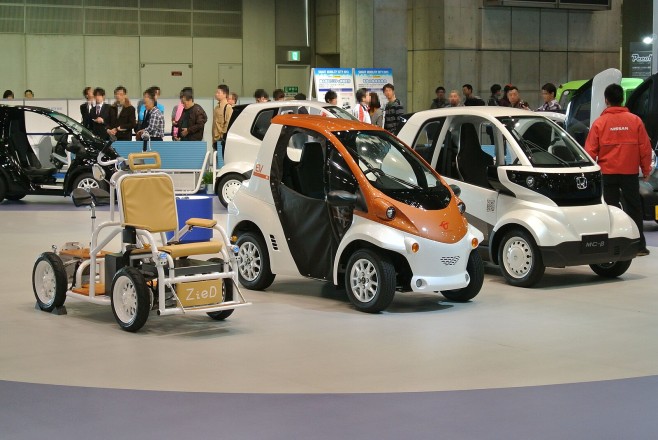The Rise of Electric Vehicles in 2024: Towards a Sustainable Future
- By Ayesha Waheed --
- 28 Nov 2024 --
- 0 Comments
- Jeddah - Saudi Arabia
Translate In Arabic
The electric vehicle (EV) revolution is accelerating in 2024, with global markets experiencing unprecedented growth. Automakers are launching innovative models, governments are encouraging the adoption of green energy, and consumers are embracing the green future of transportation. Here’s a comprehensive look at how EVs are shaping today’s world.
Electric Vehicle Market Growth: Breaking Records Worldwide
The global EV market is expected to grow by more than 40% in 2024, driven by advances in technology and infrastructure.
Key players: Tesla, BYD, Rivian, and traditional manufacturers such as Ford and Volkswagen are leading the charge. Record sales: Electric vehicles now account for more than 15% of all new car sales worldwide, with Europe, China, and the United States leading the way in their adoption.
Innovation in electric vehicles
This year, electric vehicle technology has seen groundbreaking advances, improving performance, affordability, and range:
Longer battery life: Companies like CATL are introducing batteries that offer a range of more than 1,000 kilometers on a single charge.
Faster charging: New supercharging stations can recharge vehicles up to 80% in less than 10 minutes.
Affordable electric vehicles: Models like Tesla’s Model 2 and BYD’s Seagull are making electric vehicles accessible to middle-income buyers.
Governments are encouraging the adoption of electric vehicles
Governments around the world are implementing policies to encourage the adoption of electric vehicles:
Subsidies and tax benefits: Countries such as Germany, Norway, and the United States offer financial incentives for the purchase of electric vehicles. Ban on petrol cars: Countries such as the UK and France plan to ban the sale of petrol and diesel cars by 2035.
Charging infrastructure: Investments in charging networks will ensure widespread access.
Environmental impact: A greener future
Switching to electric vehicles significantly reduces carbon emissions, especially in urban areas
Improved air quality: Cities report cleaner air due to less reliance on internal combustion engines.
Integration of renewable energy: Many electric vehicle owners combine solar panels with home charging systems, promoting the use of green energy.
Challenges facing the electric vehicle industry
Despite rapid growth, the industry faces obstacles:
Supply chain issues: Lithium and other essential battery materials remain in short supply.
Charging accessibility: Rural and underserved areas still lack adequate charging infrastructure.
High upfront costs: Even though prices are falling, electric vehicles remain unaffordable for many people in developing countries.
The role of autonomous driving in electric vehicles
Autonomous driving technology is increasingly integrated into electric vehicles:
Tesla Fully Self-Driving (FSD): Tesla is leading the race with its advanced autonomous features.
Innovative partnerships: Companies like Waymo and Cruise are partnering with automakers to develop fleets of driverless electric vehicles.
Consumer trends: Why electric vehicles are popular
Consumers use electric vehicles for several reasons
Lower running costs: Electric vehicles have lower fuel and maintenance costs than traditional vehicles.
Smooth and Quiet Driving: The smooth operation of electric vehicles improves driving comfort.
Appeal to sustainability: Environmentally conscious buyers are attracted by green benefits.
Future prospects: What is the future of electric vehicles?
The electric vehicle sector is poised for further growth, with emerging trends pointing to a promising future:
Solid-state batteries: These batteries promise to revolutionize the operation of electric vehicles with faster and safer charging.
Wireless charging: Automakers are exploring technology to charge electric vehicles wirelessly, thereby improving their convenience.
Global expansion: Emerging markets in Africa, South America, and Southeast Asia are emerging as new growth centers for electric vehicles.
CONCLUSION
Electric vehicles are not just a trend, they represent the future of transportation. Through innovation, investment and public support, electric vehicles are leading the way to a sustainable and efficient future. As we enter 2024, the electric vehicle industry continues to inspire hope for a cleaner, greener world.
To comment and like Please first login ..
Login / Register







